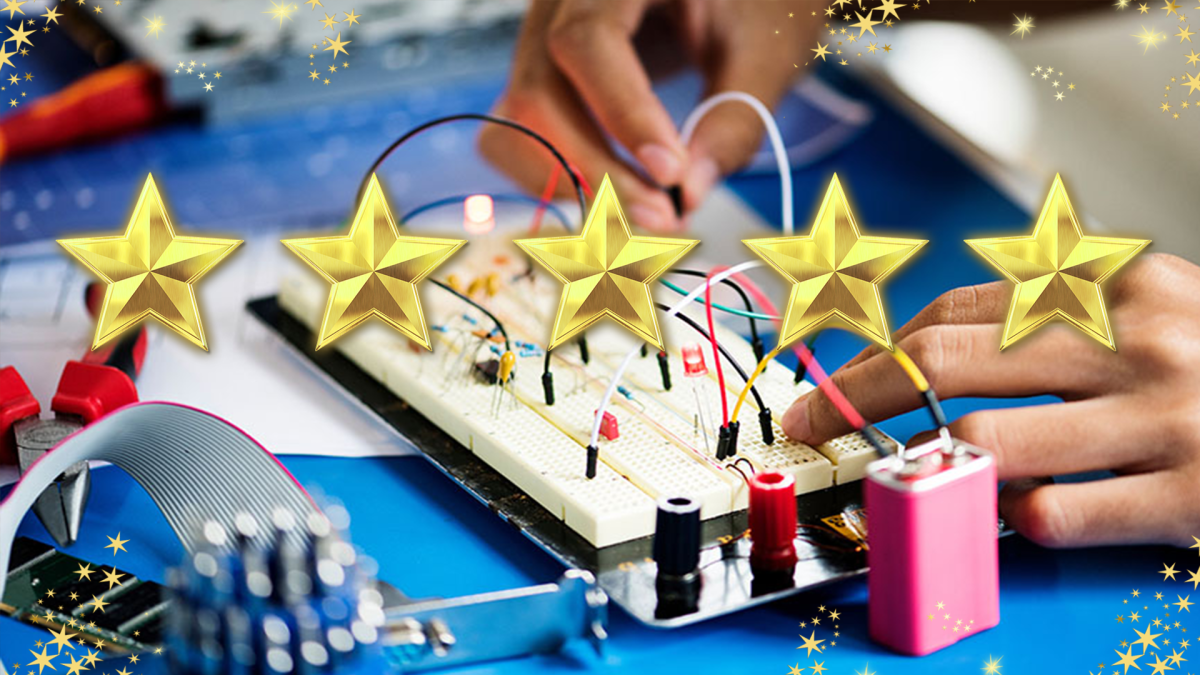In this lesson students will engineer paper airplanes. They will run 20 trials measuring and recording distance of flight. Students will make a histogram with the given data.
In this engaging lesson, students will program Edison robots to travel forward for 3 seconds. They will run 5 trials to measure distance, collecting data each time. They will compare data with
In this lesson students will find the diameter of M&Ms. They will enter their data into a class data bank using Microsoft Excel. They will analyze the class data set and then find the mean diameter of
In this engaging lesson, students complete 2 labs to investigate and analyze how the force of gravity impacts objects. The lesson is formatted for Argument Driven Inquiry design, which means it starts
In this engaging lesson, students will model a standing transverse wave using a slinky and collect measurements to find the amplitude, wavelength, and frequency of their wave in order to calculate the
In this creative lesson, students will use a slinky to model two types of waves: longitudinal/compression waves and transverse waves. Through class exploration, students will first practice making the
In this engaging and creative lesson, students get a feel of what it is like to be a chemical or materials engineer. Each group will make their own bioplastic using cornstarch, vinegar, water, and
In this creative and engaging lesson, students will create a card that incorporates a circuit design to add a light component.
In this engaging lesson, students construct a real solar oven, cook food, gather data, and analyze the data to interpret if their oven was successful or not. The lesson culminates with a presentation.
Students start by listening to "Those Darn Squirrels", by Adam Rubin. Instead of helping the birds, the students will explore the technology and the engineering design process to help those pesky
In this hands-on lesson, students will model transfer of kinetic energy by preparing and measuring the temperature of two equal quantities of water, before mixing them together and then measuring the
This hands-on lesson is geared towards an introduction to engineering and electronics in creating a simple nanobot from cardboard, a coin battery, and vibrating motor. Students use the engineering
In this hands-on lesson, students will plan, build and create a roller coaster from random materials that a Ping Pong ball can travel through. Students engage in the engineering design process as they
The scenario is that you are heading to the moon to do a year residency program. You desire a “radio tower” to be built so that you can communicate with your friends back on Earth. This Challenge
In this lesson students will work in groups to design a new weather instrument that will better predict weather. They will do a gallery walk and have the opportunity to redesign based on feedback
This lesson includes 1 or 2- 50 minute period(s) worth of particle pollution exploration. Students are creating an explanation of events for carbon dioxide and particle pollution detection, creating
This lesson is for teachers to explore how to have all students working hands on with limited numbers of materials. Explore insights, tips, strategies and templates used in a middle school wood shop
Students will use the engineering design process to plan and create a robotic arm that could be used in space exploration to places like Mars.
This lesson uses the children’s book The Seed and the Giant Saguaro to teach about plant and wildlife habitat in the Sonoran Desert. It includes story reading, discussion, a field experience, writing
Students will establish teams and use STEM skills to create models of a Phobos Base that fits in an imaginary 80cm cube and sits on a 1-meter project base. It includes facilities, rocket landing site
Today we will collaborate and communicate effectively with our peers to complete an engineering design challenge, building an obstacle course for a drone. Today students will be able to: To use manual
This lesson will explore how bees are essential to plant life and, therefore, human life. Students will learn about how social bees work together. They will also investigate why some bee populations
Students will learn about balanced vs unbalanced forces by trying to rescue bears from the "Lava" (the table) using certain given supplies.
Featured Lesson Plans
Check out these notable lesson plans.

This is a great opportunity to show students that coding can be a lot of fun, and it doesn’t have to be scary. Many high school students with little to no prior coding experience often automatically

A Shocking Dystopia: STEM Adventures in The City of Ember Part 4 of 4: Where the River Goes
This lesson is PART 4 of a four-lesson unit, which focuses on futures thinking, the phenomenon of electricity, closed-system agriculture, and water as a renewable energy resource. “The City of Ember”

A Shocking Dystopia: STEM Adventures in The City of Ember Part 3 of 4: A Problem in the Greenhouse
This lesson is PART 3 of a four-lesson unit, which focuses on futures thinking, the phenomenon of electricity, closed-system agriculture, and water as a renewable energy resource. “The City of Ember”
